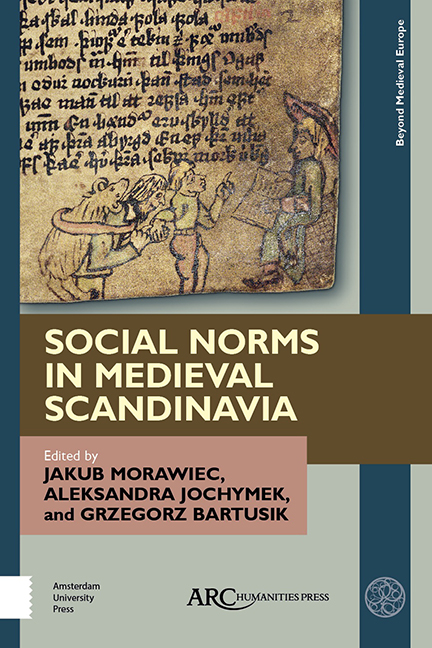Chapter 4 - Elements of Satire and Social Commentary in Heathen Praise Poems and Commemorative Odes
Published online by Cambridge University Press: 20 November 2020
Summary
SKALDIC VERSE HAS a justified reputation for being difficult— difficult for non-Icelandic speakers to translate, difficult to interpret even when the individual words have been understood, and exceedingly difficult to appreciate for its aesthetic qualities. Getting to grips with it, therefore, is a serious matter. Saga literature indicates that composing such verse was also a serious matter, one that, in the courts of rulers, could earn a skald high status and considerable wealth. The poetry itself, nevertheless, is very far from maintaining a serious tone: skalds are apt to say startling, discordant, or positively bizarre things en passant, so that even a praise poem composed for a living prince can be flecked with gibes against the skald himself or the subject of his praise.
In a tenth-century praise poem for Hákon jarl Sigurðarson, for example, Einarr skálaglamm Helgason refers to his own magnificent art as austr (bilge-water): “Hljóta munk, né hlítik, / hertýs, of þat frýju, / fyr ǫrþeysi at ausa / austr vín-Gnóðar flausta” (I shall be obliged to bale out the bilge-water of the wine-Gnóð [wine-ship] of army-Týr [Óðinn] for the brave speeder of ships; I shall not submit to abuse for that).
The use of this apparently self-deprecating metaphor is striking in the context of an exceptionally long and highly wrought poem intended as a gift to the man who turned out to be the last great heathen ruler in Norway; it is all the more so when one considers that the poem's medieval title, attested in Heimskringla and Óláfs saga Tryggvasonar in mesta, is “Vellekla,” meaning “Dearth of Gold,” which most probably indicates that the work was understood as belonging to the genre of “begging poems,” whose purpose was to remind the recipient of his duty to reward the skald. In such a context, is it not selfdefeating, at least momentarily, to refer to one's poetic offering in this way?
The reader's or audience's precise response to the bilge-water metaphor will depend on their response to the kenning of which austr is the base-word: the wine-ship of army-Týr is the vat of Óðinn, and its austr is thus the mead of poetry; hence the act of baling out the bilge-water is that of pouring out the mead of poetry when reciting a composition.
- Type
- Chapter
- Information
- Social Norms in Medieval Scandinavia , pp. 75 - 90Publisher: Amsterdam University PressPrint publication year: 2019

